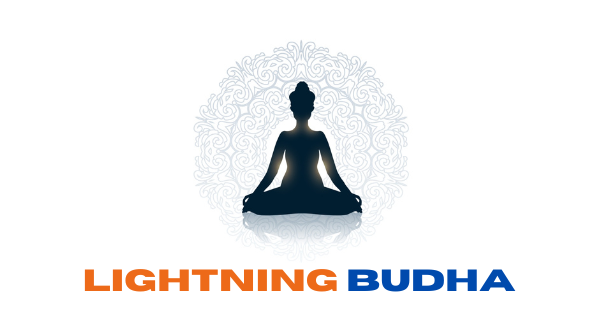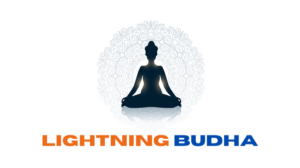Explore the journey of ‘Breaking Free’ from toxic relationships. Discover strategies for ending negativity, setting boundaries, and embracing personal growth. Empower yourself to move forward with strength and positivity.
Learn how to recognize signs of toxicity, set boundaries, and move forward towards a healthier, happier future. Navigate your journey of breaking free with strength and self-care
Relationships are meant to enrich our lives, provide support, and foster growth. However, when a relationship becomes toxic, it can take a toll on our emotional and mental wellbeing. Breaking free from a toxic relationship is an act of self-care and empowerment.
In this article, we’ll explore strategies to end a toxic relationship and pave the way for a brighter, healthier future.
Breaking Free – Recognizing the Signs of Toxicity
Before taking steps to end a toxic relationship, it’s crucial to recognize the signs. Toxic relationships are characterized by patterns of manipulation, disrespect, control, and emotional abuse. These signs may include constant criticism, lack of support, gaslighting, and feeling drained or anxious in the presence of the other person.
1. Acknowledging Your Worth
The first step towards ending a toxic relationship is acknowledging your worth. Understand that you deserve to be treated with respect, kindness, and empathy. Reflect on your values and envision the type of relationship you want for yourself.

It is a transformative voyage of self-discovery, “Acknowledging Your Worth.” It’s about understanding your intrinsic worth, embracing your individuality, and accepting that you deserve happiness, respect, and love in every area of your life. You gain the ability to stand up, make decisions that respect your wellbeing, and develop a stronger feeling of self-love and self-respect as a result of this empowering process.
2. Seeking Support
Life’s journey is often filled with twists, turns, and challenges that can leave us feeling overwhelmed and uncertain. During these times, seeking support becomes a beacon of light that guides us through the darkness.
Ending a toxic relationship can be emotionally challenging. Seek support from friends, family, or a therapist who can provide guidance, validation, and a safe space to share your feelings.

It’s not a show of weakness to ask for help; rather, it’s a brave move towards recovery and development. It serves as a reminder that we are not supposed to go alone. By interacting with others, we invite them to add to our story and they add to theirs.
In the end, asking for help serves as a potent reminder that we are stronger together, and that by connecting with others, we gain the strength to face the challenges of life with grace, compassion, and a revitalized sense of purpose.
3. Setting Boundaries
Imagine having a barrier that prevents negativity and disrespect from entering your emotional and mental space. The ability to establish limits serves as this shield. It involves setting personal boundaries, being clear about your wants, and promoting a positive dynamic of giving and receiving. Setting limits supports your welfare and enables you to develop, much as a garden flourishes when it is surrounded by a fence.

Establish clear boundaries with the toxic person. Communicate your limits and expectations, and be firm about your decision to end the relationship. Setting boundaries helps protect your emotional wellbeing and prevents manipulation.
4. Creating a Support Network
The road of life is a tapestry made of encounters, difficulties, and victories. The people we interact with are like each thread; they individually add to the beauty of the whole. Building a support system is similar to constructing a web of ties, a safety net of loved ones, mentors, and peers who encourage us in both good and bad times.

It’s about surrounding yourself with people who encourage, pay attention to, and believe in you. This creates a sense of strength and belonging that equips you to handle anything life throws at you.
Surround yourself with people who uplift and support you. Building a strong support network can provide the emotional reinforcement you need during the transition.
5. Practicing Self-Care
Think of yourself as a garden that needs sunlight, water, and attention in order to grow. Self-care is nurturing your mind, body, and soul with love, just like you would a garden. It’s about setting aside time for yourself, whether it be through leisurely strolls, quiet times of reflection, or indulging in pursuits that make you happy.

Self-care allows you to blossom, regenerating your energy and achieving a harmonious balance between your needs and life’s demands, much like gardens that are properly maintained do.
Engage in self-care activities that nurture your physical, emotional, and mental health. This could include exercise, mindfulness, journaling, and engaging in hobbies you enjoy.
6. Preparing for Challenges
The journey of life is full of peaks and valleys, sunny periods and unforeseen storms. Getting ready for challenges is like placing on your spiritual armour. it’s a method to give oneself inner resilience and strength. It involves expecting challenges with a brave heart and believing you have the resources to handle whatever comes your way.

Preparing for obstacles assures that you can weather any turbulence while keeping true to your route, emerging wiser and stronger on the other side, just like a ship is strengthened before setting sail.
Ending a toxic relationship may lead to challenges, such as guilt, loneliness, or doubts. Prepare yourself for these emotions and remind yourself of your decision to prioritize your wellbeing.
7. Focusing on Healing
Imagine a soft breeze that clears away the dust of your struggles and leaves you with clarity and peace. Like that breeze, focusing on healing is a calming process of self-renewal. It involves focusing within and allowing yourself the time and space to recover, think, and develop.

Focusing on healing enables you to find consolation within yourself, nourishing the wounds of the past and cultivating the seeds of a better future, just like a wounded bird seeks solace in a quiet nest.
After ending a toxic relationship, focus on healing and rediscovering yourself. Engage in activities that bring you joy, explore your interests, and invest time in personal growth.
8. Seeking Professional Help
Think of your thoughts as a landscape filled with beautiful blooms and interesting designs. Comparable to hiring a seasoned gardener to take care of your garden is asking for professional assistance. You need to get in touch with qualified professionals who can help you overcome obstacles and provide you with insights and growth-oriented tools.

If you find it challenging to cope with the aftermath of a toxic relationship, consider seeking therapy. A therapist can help you navigate your emotions, rebuild your self-esteem, and develop healthy coping strategies.
Seeking professional assistance enables your mind to bloom, assisting you in navigating the difficulties of life with clarity, resilience, and a revitalized sense of purpose, much as a garden thrives under the care of a professional.
3 Ways to End a Toxic Relationship ( WikiHow)
9. Embracing a Fresh Start
Consider your life as a blank canvas ready to be painted with your goals and desires. Accepting a new beginning is like dipping your brush into a palette of fresh options. It’s about starting a new chapter in your life where you write the story and erasing the old to make room for the new.
By accepting a new beginning, you can paint a vivid picture of the life you want, one that is full of hope, progress, and the limitless shades of your potential. This is similar to how an artist produces something new with each stroke.

Ending a toxic relationship opens the door to a fresh start. Embrace the opportunity to create a life that aligns with your values and aspirations. This is your chance to design the fulfilling and positive relationships you deserve.
Ready to Ignite Your Inner Light?
Conclusion
Breaking free from a toxic relationship requires courage, self-awareness, and self-compassion. By recognizing the signs of toxicity, seeking support, and implementing strategies for healing, you can pave the way for a future filled with positivity, growth, and healthy connections.
Remember, you have the power to choose relationships that nurture your wellbeing and contribute to your happiness. As you embark on this journey, embrace the strength within you to build a life that reflects your true worth.
Other Interesting Posts To Read:
Maximizing Productivity: How to Get More Done in Less Time
5 Mindful Practices for Lightning-Fast Decision Making
Mindful Breaks: Recharging Your Energy with Lightning-Fast Pauses


